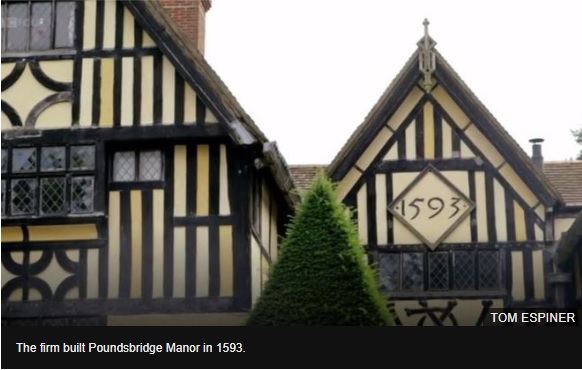
Britain's oldest building firm, R Durtnell and Sons, has ceased trading, putting more than 100 jobs at risk.
The company was founded in 1591, and has been run by 13 generations of the same family.
It was working on a £22m project to refurbish parts of the Royal Pavilion Estate, when it failed.
The firm, based in Brasted in Kent, started building in the time of Elizabeth I and built timber-framed houses.
They started as carpenter-builders, who didn't build in brick or stone, but exclusively in wood.
The business built Poundsbridge Manor in Kent in 1593. It is still standing, and is a short distance from Brasted.
The timber-framed house was one of several built by family ancestor Bryan Darknal for Elizabethan merchants.
The family remained as carpenter-builders until the 1800s, when Richard Durtnell bought a much larger premises.
He set himself up as a general builder, and the business flourished.
'Challenging conditions'
The last family member to run the firm was Alex Durtnell.
The firm specialised in churches, private schools, art galleries and luxury houses.
R Durtnell & Sons made a loss before tax of £679,877 in the year ended 31 December 2017, according to documents submitted to Companies House.
It said economic conditions had been "very challenging".
The documents show it took a charge of £648,279 on the closure of its joinery business, which had been substantially cut during the recession.
The firm had financial injection of £1.5m after cash flow difficulties in 2018.
It also warned about competitive pressures and risks in contract tendering and management.
Brighton project
One of the company's major projects was the refurbishment of the Brighton Dome Corn Exchange, which was originally built as the Prince Regent's stable block more than 200 years ago.
Brighton & Hove City Council said it was "committed" to the project, which included renovating the Studio Theatre.
"The council has taken back the site and made it secure," it said.
"We are committed to completing the refurbishment of these unique buildings to protect their long-term future in the cultural heart of the city."
Since the recession of 2008, more than 7,000 British building firms have gone bust.

